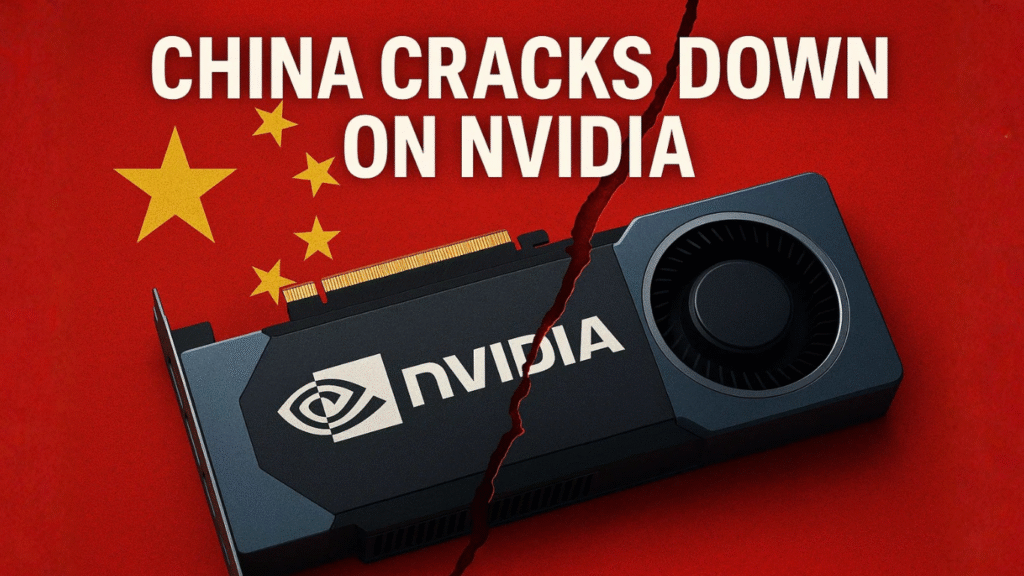China has intensified scrutiny of Nvidia Corp.’s (NASDAQ: NVDA) artificial intelligence chips, according to a report by the Financial Times. The move underscores Beijing’s push to curb reliance on U.S.-made processors amid rising technological tensions with Washington.
In recent weeks, teams of customs officers were deployed at major Chinese ports to enforce stringent inspections of semiconductor imports. The checks reportedly focus on Nvidia’s China-tailored chips, particularly the H20 and RTX Pro 6000D models—products designed to comply with U.S. export restrictions on advanced AI hardware.
Sources cited by the FT said the campaign aims to ensure domestic developers avoid purchasing these restricted Nvidia chips, aligning with Beijing’s strategy to accelerate semiconductor self-sufficiency. However, the inspections have expanded to cover all advanced chip imports, targeting potential smuggling and re-export violations that could breach U.S. sanctions.
Nvidia Faces Tightrope Between Markets
Nvidia remains caught between two competing regulatory forces: U.S. export controls limiting chip sales to China and Chinese resistance toward American technology. Although Washington granted Nvidia partial clearance earlier this year to sell modified chips in China, the market response has been tepid.
Beijing has treated the issue as one of national security, urging domestic firms to transition toward local alternatives. As a result, Chinese tech giants such as Huawei, Cambricon Technologies, and Semiconductor Manufacturing International Corp. (HK: 0981) are ramping up AI chip development to fill the gap.
Industry analysts estimate China’s AI chip imports from the U.S. fell over 40% in the past year, while domestic production capacity climbed nearly 28%. This shift highlights Beijing’s growing determination to reduce technological dependence on foreign suppliers.
Key developments driving the crackdown:
- Expanded customs inspections across major ports.
- Targeted review of Nvidia’s H20 and RTX Pro 6000D chips.
- Surge in investment toward domestic chipmakers.
Tech Rivalry Reshaping AI Supply Chains
The scrutiny marks another escalation in the U.S.-China tech rivalry, which has already disrupted global semiconductor supply chains worth over $600 billion. Chinese regulators have encouraged public agencies and state-backed firms to favor homegrown processors over U.S. imports, framing the shift as critical to economic sovereignty.
Meanwhile, Nvidia continues to walk a geopolitical tightrope. China accounts for nearly 20% of Nvidia’s total revenue, making it one of the firm’s largest overseas markets. Yet, with regulatory barriers rising on both sides, analysts warn that maintaining this balance will become increasingly difficult.
As trade restrictions deepen and China’s chip ambitions accelerate, the semiconductor battlefield between the world’s two largest economies shows no sign of cooling.


